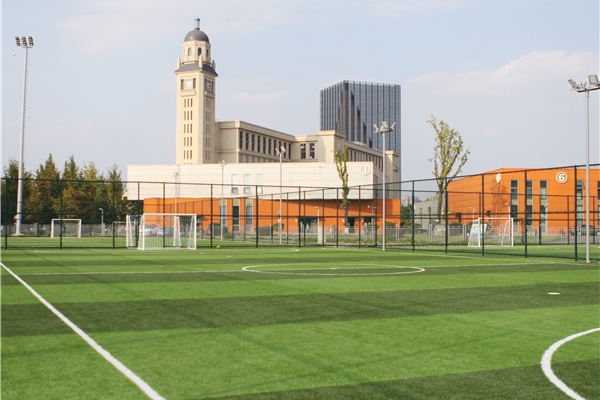即可将网页分享至朋友圈
为搭建我校博士后之间的学术交流平台,促进学术水平提升,学校人力资源部博士后管理办公室组织开展博士后学术沙龙活动。本次沙龙由我校博士后 Zenebe Markos Lonseko、Imrana Yakubu分享其研究成果,特别邀请Ludovico Minati教授和Benjamin Klugah-Brown副研究员做学术和申报基金的经验分享,诚挚邀请感兴趣的师生参加。
一、时 间:2024年7月5日(周五)14:30-16:00
二、地 点:清水河校区经管楼宾诺咖啡
三、主 办:人力资源部博士后管理办公室
四、承 办:生命科学与技术学院 电子科技大学博士后联谊会
五、活动安排:
报告一:
(1)主题: Bio-FedCan: Bio-Inspired Federated Learning for Cancer Detection and Diagnosis
(2)主讲人:Imrana Yakubu博士后,生命科学与技术学院
(3)交流内容:
Cancer is a global health challenge with millions of new cases each year. Early detection and accurate diagnoses are essential for effective treatment. Advances in genomics and machine learning have improved cancer detection and diagnosis by providing precise and personalized approaches. Technologies like RNA sequencing have deepened our understanding of cancer biology, while machine learning algorithms have shown promise in early detection and prognosis. However, cancer's complexity and privacy concerns in data sharing pose challenges. Federated learning, a distributed approach that trains models locally without sharing raw data, offers a solution by enabling collaborative research while protecting patient privacy. This presented will provide a research progress on Leveraging Federated Learning for Secure and Effective Cancer Detection and Diagnosis.
(4)主讲人简介:
Dr. Yakubu, a Postdoctoral Researcher at the University of Electronic Science and Technology of China, specializes in Network Intrusion Detection, Biomedical and Health Informatics, Machine Learning, Data Science, and Soft Computing. His research focuses on enhancing automated disease detection and network intrusion detection systems through innovative feature selection and extraction methods, aiming to improve the performance of traditional machine learning and deep learning models. His work has been predominantly published in high-impact journals, and he actively contributes as a reviewer for prominent journals such as the Journal of Healthcare Engineering and Computational and Mathematical Methods in Medicine Journal.
报告二:
(1)主题:Deep Learning Approaches for Gastrointestinal Lesions Diagnosis in Endoscopy Introduction
(2)主讲人: Zenebe Markos Lonseko博士后,生命科学与技术学院
(3)交流内容:
Gastrointestinal (GI) diseases pose significant diagnostic challenges due to their diverse symptoms and conditions. Accurate and timely diagnosis is crucial for the effective treatment and management of GI lesions. Despite numerous proposed approaches and notable progress, limitations hinder the integration of computer-aided diagnostic (CAD) systems and require visually interpretable biomarkers. Conventional methods for diagnosing GI lesions pose challenges in lesion classification, segmentation, and severity estimation due to intra- and inter-observer variability and overlapping lesion features. Moreover, existing deep-learning (DL) methods treat lesion classification, segmentation, and severity estimation as separate tasks, complicating comprehensive diagnosis. Thus, our primary goal is to enhance the accuracy of GI lesion diagnosis and develop CAD frameworks for clinical use. This work will explore DL-based approaches using limited endoscopy images and outline future research plans to develop a CAD method for GI lesion diagnosis by applying multi-task learning to multimodal data, including 2D/3D images, videos, and text.
(4)主讲人简介:
Zenebe Markos Lonseko is a Postdoctoral Researcher at the School of Life Science and Technology, University of Electronic Science and Technology of China (UESTC). Prior to that, he was an Assistant Professor at the School of Public Health at Dilla University, Ethiopia. He graduated with a PhD in Biomedical Engineering from UESTC under the guidance of Professor Rao Nini in 2022. Besides, he received a master's degree in Health Informatics from Addis Ababa University in 2013. His research interests include medical image/video processing, artificial intelligence, and deep learning.
报告三:
(1)主题:Across neurons and silicon: some ideas about the relationship between unusual electronic circuits and neuroscience
(2)主讲人:Ludovico Minati教授,生命科学与技术学院
(3)交流内容:What makes the brain unique, and what exactly is unique about it from a physical perspective, after all? I will try to approach these questions by first highlighting two aspects. One, the profound differences with respect to present-day computers. Two, how Nature has leveraged, to construct brains, some phenomena that are actually universal, pervasive in other systems, and thus possible to replicate electronically at some level. I will discuss how similar emergent behaviors can be observed across rather diverse systems, and how comparing brain activity to some rather unusual electronic circuits could be inspiring, both for neurophysiology and for electronic engineering. I will briefly overview my recent research attempting to “summarize” in simple electronic circuits, mainly so-called chaotic oscillators, some phenomena arising in other biological and physical scenarios, especially in brain dynamics. Firstly, a gallery of these rather unusual circuits will be walked through, surveying some oscillators based on transistors, gas-discharge tubes, and other electronic components. Secondly, simple networks of these circuits will be considered, demonstrating the spontaneous emergence of phenomena commonly observed in neural recordings, such as community structures, remote interdependences, and so on. Thirdly, some applications will be discussed, comprising the creation of physical instead of simulated in-silico disease models, bio-inspired pattern generation, and engineering applications such as in distributed sensing. While by no means a comprehensive introduction to this young multidisciplinary field, this presentation should hopefully provide some ideas regarding how engineering and neuroscience can provide mutually inspire each other.
(4)主讲人简介:
Ludovico Minati (Senior Member, IEEE) received the Ph.D. degree in Neuroscience from the Brighton and Sussex Medical School, Falmer, U.K., in 2012, the D.Sc. (doktor habilitowany) degree in Physics from the Institute of Nuclear Physics, Polish Academy of Sciences, Kraków, Poland, in 2017, and the M.B.A. degree in Technology Management from The Open University, Milton Keynes, U.K., in 2021.
Until 2023, he was a Specially Appointed Associate Professor with the Institute of Innovative Research, Tokyo Institute of Technology, Tokyo, an Affiliate Research Fellow with the Center for Mind/Brain Sciences, University of Trento, Trento, Italy, and a Freelance Research and Development Consultant. He is now a Professor, Outstanding Young Talent and Director of the Interdisciplinary Nonlinear Dynamics Laboratory at the School of Life Science and Technology, UESTC. He has authored more than 160 articles and several patents. His research interests include nonlinear dynamical systems, chaotic oscillators, reconfigurable analog and digital computing, analog integrated circuits, advanced techniques for biosignal analysis, brain–machine/computer interfaces, and robotics.
He is a European Engineer (Eur. Ing.), a Chartered Engineer (CEng) and a member of the Institution of Engineering and Technology, U.K. He is also a member of the Institute of Electronics, Information, and Communication Engineers (IEICE), and the Institute of Electrical Engineers (IEE) of Japan."
报告四:
(1)主题:Securing the National Natural Science Foundation RF for International Scientists: A Comprehensive Guide
(2)主讲人:Benjamin Klugah-Brown副研究员,生命科学与技术学院
(3)交流内容:Securing funding for international research is crucial for advancing scientific knowledge and fostering global collaboration. The National Natural Science Foundation's RF for International Scientists grant offers a unique opportunity for researchers to contribute to innovative projects in China. This talk will provide a comprehensive overview of how to craft a successful application for this important grant. By exploring successful case studies from neuroimaging and addiction research, the talk will dwell on the key elements that make a proposal stand out. Attendees will gain valuable insights into the application process, essential tips for writing a compelling research proposal, and strategies to highlight scientific merit and innovation. Join us to learn how to navigate the challenges and maximize your chances of securing this vital funding for your research endeavors.
(4)主讲人简介:
Dr. Benjamin Klugah-Brown is a Distinguished Associate Research Professor at the School of Life Science and Technology, University of Electronic Science and Technology of China (UESTC), where he serves as the Principal Investigator at the Brain Connectivity Lab, focusing on Addiction research. His research encompasses brain connectivity within the reward system and various psychiatric disorders, including behavioral and substance use addictions, and compulsive behaviors. Formerly a postdoctoral researcher at UESTC, Dr. Klugah-Brown employs advanced data analysis methods for both resting-state and task-based studies, utilizing systematic meta-analyses to identify common and distinct brain reward networks across different drugs and behaviors in adolescents and adults. His recent work explores white matter connectivity in the brain's reward pathways using data-driven and machine learning techniques. A recipient of the National Natural Science Foundation of China (RF for International Scientists) grant for his research on internet gaming addiction, he is also a lead member of the COVID-Induced Brain Dysfunction of the Global Brain Consortium (GBC). To date, Dr. Klugah-Brown has authored or co-authored over 50 articles in SCI and EI journals.
人力资源部博士后管理办公室
2024年7月2日
编辑:罗莎 / 审核:李果 / 发布:陈伟


